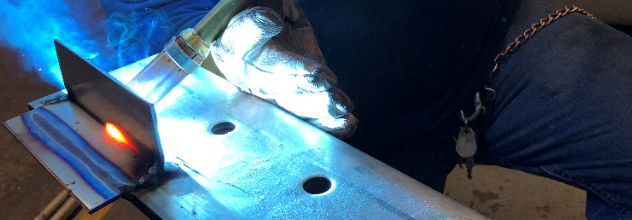Tag Archives: welding procedures
Why prequalified welding procedures are exempt from testing

One of the advantages of using prequalified welding procedures is that you can save a lot of time and money because they are exempt from testing. This means you don’t need to perform any destructive or nondestructive testing. You simply follow the requirements of AWS D1.1 and you can write a prequalified welding procedure and […]
Why More Customers are Requiring Qualified Welding procedures

If you own or work at a job shop you may have noticed an increase in the number of customers that require the use of qualified welding procedures to build their products. Some fabricators are even getting this request from long time customers who never required them in the past. So why is this? The […]
Welding Engineering Topics for Non-Welding Engineers

Today we are faced with a tremendous shortage of welding professionals. This includes welders, fitters, cutters, inspectors, supervisors, robotic technicians and welding engineers to name a few. Although every fabricator can benefit from having a welding engineer on staff, most welding engineers tend to work in specific industries such as Oil & Gas, Aerospace, Automotive […]
The 3 Biggest Problems with Welding Procedures
Have you ever developed, written, qualified or approved a welding procedure? If you have, what was the reason? To satisfy the requirements of a contract? To control quality? To improve productivity? To pass an audit? To help new welders? As welding consultants, CWIs and welding engineers we see hundreds of welding procedure specifications (WPSs) every […]
9 Common Problems with Welding Procedures
They can do more than simply fail an audit
The use of welding procedures specifications (WPS) is the foundation of a good welding quality control management system. It has a huge impact on quality as well as productivity. Despite this, many fabricators are still running their facilities without WPSs. And many who are, have significant issues which prevent this powerful document from maintaining quality […]
The 9 Clauses of AWS D1.1 Structural Welding Code Explained
The most widely used welding code in North America, and perhaps the world, is AWS D1.1/D1.1M Structural Welding Code – Steel. It is specified as the quality standard in hundreds of contract documents every year. Yet, we find that less than half of the fabricators that need to use it have a sound understanding of […]

